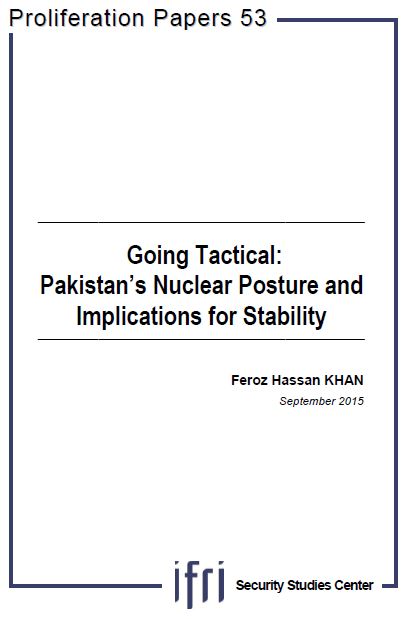Going Tactical: Pakistan’s Nuclear Posture and Implications for Stability

For decades, the Asian security environment has been characterized by multiple strategic rivalries with cascading effects.
Due to its competition with China, India modernizes its armed forces, thus reinforcing its conventional advantage over Pakistan. In the subcontinent, geography, military imbalance, the legacy of past conflicts and infiltration of extremist groups considerably weaken strategic stability. To strengthen its deterrent capability against its stronger neighbour, Pakistan faces significant challenges in developing a conventional response to perceived threats from India. Islamabad thus committed to a “full spectrum” build-up of its nuclear forces, which includes the development of tactical nuclear weapons. As Cold War experience informs, far from simply strengthening its deterrent vis-a-vis India, this move poses numerous operational dilemmas for Pakistan. The ongoing regional quantitative and qualitative arms race combines with continued political tensions between India and Pakistan to create a worrying strategic dynamic in South Asia.
Download the full analysis
This page contains only a summary of our work. If you would like to have access to all the information from our research on the subject, you can download the full version in PDF format.
Going Tactical: Pakistan’s Nuclear Posture and Implications for Stability
Related centers and programs
Discover our other research centers and programsFind out more
Discover all our analysesThe Franco-German Brigade and the Revival of European Defense
One thing has been clear since Donald Trump's return to the White House: the very existence of the European unification project is threatened. Unless it develops a sovereign defense policy to counter the war in Ukraine and the weakening of American security guarantees, the European Union will continue to see its internal cohesion and external attractiveness wane.
Taking the Pulse: Can Europeans Build Their Independent Extended Nuclear Deterrent?
Confronted with a U.S. disengagement and the Russian threat, Europeans are reconsidering their stance on nuclear deterrence. Given the capabilities of the French and British arsenals, can Europe develop an independent nuclear deterrent?

RAMSES 2024. A World to Be Remade
For its 42nd edition, RAMSES 2024 identifies three major challenges for 2024.
A Transatlantic Defense Industrial Base? Two Contrasting Views
The evolving landscape of global defense cooperation has brought the transatlantic relationship between the United States (US) and Europe into sharp focus. As geopolitical tensions rise and the threat environment becomes more complex, the question of how Europe can best ensure its security while navigating its relationship with the United States has become paramount. This double feature report offers two contrasting views on the dynamics of US-Europe defense industrial relations, highlighting the challenges and opportunities that lie ahead for both parties.








